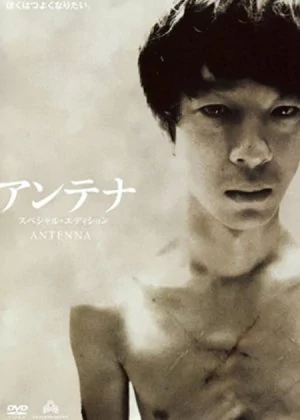Antenna

Japanese cinema may enjoy some popularity and appeal overseas, but there are lots of Japanese directors who remain confined by their national borders. I've been following Kazuyoshi Kumakiri since the early days of his career, Antenna [Antena] being one of those films that made it clear to me that he has a real knack for dark drama. They're not the easiest and most accessible films, which may very well be why I postponed this rewatch for quite some time. On the other hand, they have lost very little of their initial power, and returning to them is rarely disappointing.
![screencap of Antenna [Antena]](/thumbs/img/articles/1200xauto/antenna-1.webp)
Though Kumakiri dabbles in genre cinema from time to time, he is at his best when he is allowed to tackle edgier dramas. While those darker dramas form a proper niche in Japanese cinema, they don't really seem to travel well, with the West showing more interest in their lighter and more saccharine output. The combination of introverted characters, more minimalist styling, and taboo subjects is something you don't see all that often though, and when done properly it can be very gripping and powerful. Hence the appeal of films like Antenna.
Kumakiri adapts Randy Taguchi's novel about a family torn apart by grief and guilt. It's the type of drama where characters heal by crashing head-first through their own repressed emotions, though not without picking up some residual scars in the process. It's not something that is particularly close to my own life, or which I normally find easy to identify with, but the power of Kumakiri's directorial style lies exactly in making me feel and experience something that is otherwise quite alien to my own emotional state. For me, that is one of the markers of quality cinema.
Yuichiro's world is instantly destroyed when his younger sister Marie disappears overnight, while he's sleeping right next to her. His mother never recovers from the disappearance, the body is never found and the family grows apart. Ten years later, a girl who disappeared in similar circumstances is found in an abandoned house nearby Yuichiro's hometown. This discovery rekindles painful memories. His younger brother deals with the situation by pretending to be Marie. Yuichiro made it a habit to cut himself and is dedicating his studies to the topic of self-inflicted pain as a solution to dealing with trauma. That's when he meets a dominatrix who is willing to help him.
![screencap of Antenna [Antena]](/thumbs/img/articles/1200xauto/antenna-2.webp)
The cinematography is exactly what you'd expect from this type of film, solemn and unobtrusive, but stylish nonetheless. It's not too explicit or too demanding of attention, but the framing is pleasant, the use of lighting is evocative and Kumakiri makes good use of the setting to lend the film a little extra flair. A proper HD release is still lacking and even within its genre, it's not a film that stands out because of its visuals. Still, it is clear the cinematography received a level of visual polish that helps to ground the other aspects of the film, and it makes a positive impact.
The soundtrack is pretty much in line with the cinematography. Nothing too out of the ordinary, pretty much what you'd expect from a Japanese drama with darker edges, but with a certain finish that does elevate Antenna ever so slightly. The score leans on soft piano and string pieces, with some rougher accents to keep the atmosphere in line with the grittier themes. It's a very capable score and it does its part in setting the mood, it's just not all that noticeable, keeping itself away from the forefront. Personally, I prefer a more distinctive selection of music, but other than that I didn't have any complaints.
A young Ryo Kase is the star of this film. He was already on the road to stardom when he signed up to do Antenna, but it was his first time (from what I've seen anyway) carrying almost the entire weight of the cast. His part is quite tricky (as he hasn't the most enjoyable character to work with and his actions can be quite puzzling at times), but he translates the challenges of Yuichiro perfectly and adds a lot of nuances where his character could've fallen flat. He is able to lean on Akemi Kobayashi a little, their scenes are the true highlight of the film, other than that, most actors do a good job, but don't really have enough screen time to make a real difference.
![screencap of Antenna [Antena]](/thumbs/img/articles/1200xauto/antenna-3.webp)
The plot is rather thin for a 2-hour film, but Kumakiri uses his time wisely. The build-up is a tad slow and it takes a while for all the pawns to be placed exactly where they need to be, but once the emotional payoff emerges, it becomes clear that the first hour wasn't just there for padding. Not that the pacing in the second half is noticeably faster, but the drama really delivers a few targeted punches to the gut, and they linger. Depending on how you deal with the taboo elements your mileage may vary, as for me, I felt they just gave the film that little extra edge.
I didn't remember a whole lot from the first time I watched Antenna, in many ways it is a pretty typical Japanese drama, only with some darker overtones. The good thing is that these films hardly decrease in quality over time. The presentation is still pretty fitting and stylish, the performances are top notch and the somewhat edgier dramatic elements give the film a unique perspective. I'm pretty certain Kumakiri is one of those directors who'll be positively reevaluated in due time, for now though, don't miss out on any of his films if you get the chance. There are some genuine gems hiding in his oeuvre.